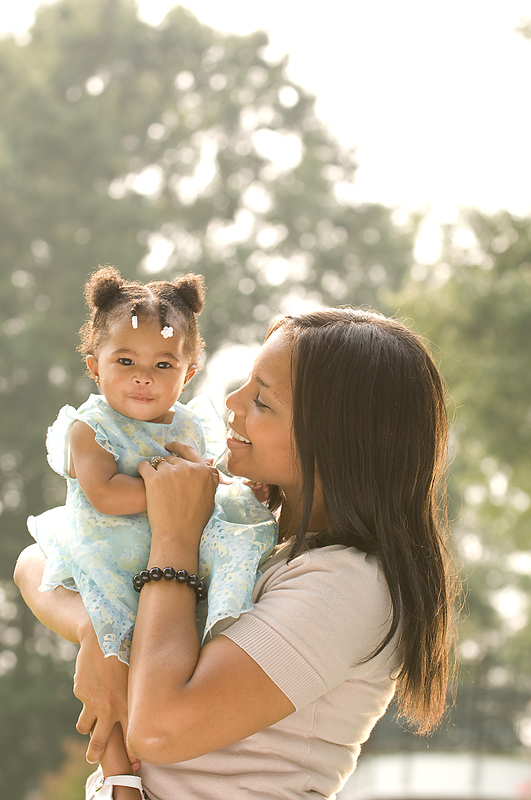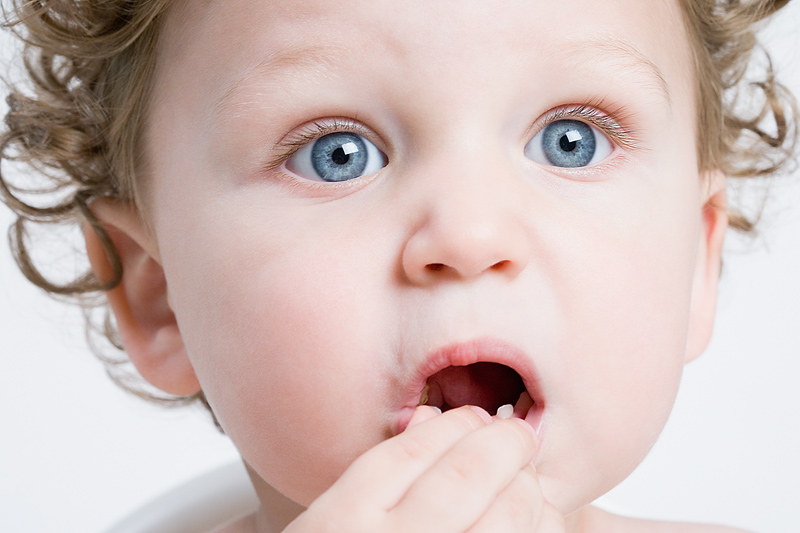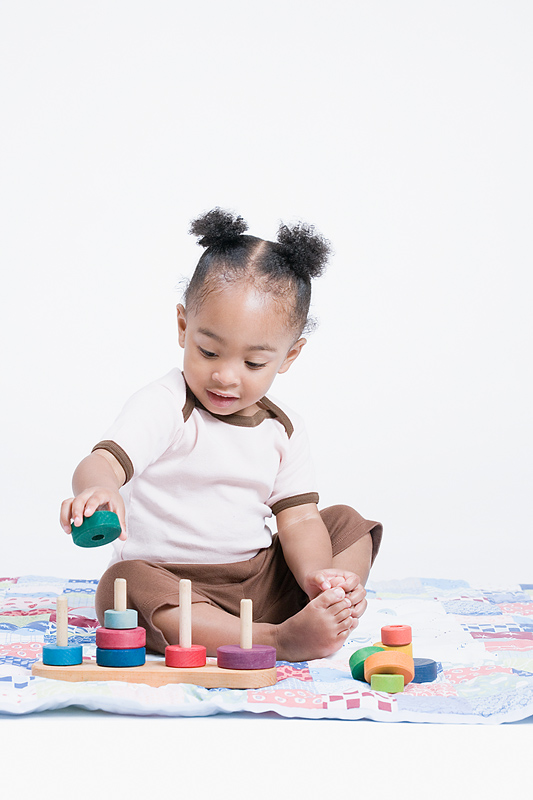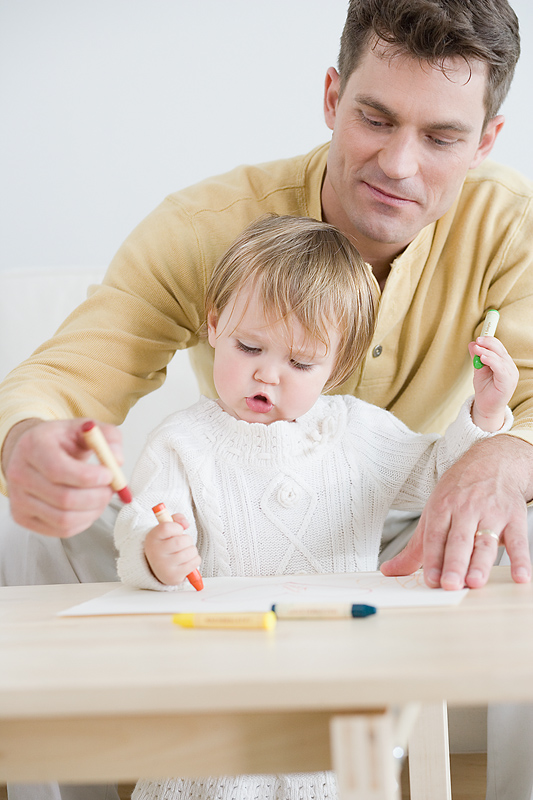2nd Year
MONTHS
13-14
2nd Year – Months 13-14
Parents Are the First and Most Important Teachers

By guiding your child’s simple, everyday activities, you are providing the building blocks to help your child grow up healthy and ready for success.
Guiding and caring for your toddler will be challenging and exciting. They will need attention and help from you. You’ll need a sense of humor, some time for yourself, and lots of common sense.
What’s it like to be 13 and 14 months old?
How I Get Along With Others
- Seeking Attention:
- I love to have people watch me and I like to hear them clap for me; I’m beginning to do cute things just to get your attention.
- Showing Affection:
- I show I love you with hugs and kisses … sometimes.
- I still like to keep my parents or caregiver in sight when I’m exploring.
- Exploring Social Interactions
- I’m beginning to get used to babysitters, but I’m still shy with strangers.
- I like to have you play with me.
- Sometimes I drop things just to get you to pick them up for me.
- I don’t like playing in a room by myself.
- Emotional Expression
- I may have tantrums and throw things when I’m angry.
How I Talk
- Language Development:
- I am learning simple words, like “Bye-bye” or “More” for milk, or “Da-da” for “Daddy or “Pa-pa” for Grandpa.”
- I like putting sounds together.
- I really try hard to make you understand me.
- I like to repeat words or syllables you say.
- Sometimes I like you to tell me the names of things in books. I might point.
- Understanding and Responding:
- I can look in the right direction when you ask, “Where’s Daddy”, ”Where’s the ball?”
- I will answer to my name.
- I will wave bye-bye if you ask.
- I have begun to understand the names of some people, animals, and things that are important to me.
- I can let you know when I want something like a glass of milk.
What I Have Learned
- Understanding Boundaries:
- I am starting to learn what you will let me do and what you won’t let me do.
- Sometimes, not often, I will respond to a firm “no-no”
- I have not yet learned what is dangerous for me to do.
- I feel safe when you watch over me.
- Exploratory Actions:
- I will empty anything I can get to — such as dresser drawers, kitchen cabinets, trash cans, pet litter boxes, and laundry baskets.
- Sometimes I like to put things back in containers, especially if you show me.
- I may scream just to show you how powerful I am.
- I have learned pat-a-cake and like to show it off to anyone who will watch.
- Imitative Behavior:
- I like to copy your actions.
- I have learned how to get you and other adults to help me do things.
How I Grow
- Physical Milestones:
- I can climb up a step.
- I want to walk or crawl around and explore everything.
- I can pick up small objects, like blocks, turn the pages of a book, and hold a spoon.
- I may want to pull myself up and hold on to something to stand or walk.
- I may be able to stand alone and walk well.
- Behavior and Interests:
- I poke, bang, turn, and twist everything I can reach.
- I’m very interested in small things like crumbs, bugs, and little rocks.
- I spend a lot of time just staring at things; this is one way I learn.
- Emotional Development:
- I may be afraid of the dark.
Play I Like
- Exploratory Play:
- I like to push a rolling toy and put things in piles.
- Social Play:
- I enjoy playing alone, and also like to play with you —especially chase-me, catch-me, peek-a-boo, hide-n-seek, and tickling.
- Creative Play:
- I like putting little things in big things.
- I like to listen to music and dance to it.
- I’m beginning to pretend play, like driving a pretend car.
Some children do things earlier or later than described here. Most differences are normal. Focus on what your child can do and get excited about each new skill. If you notice that your child is lagging behind in one or more areas for several months, use this list to talk with your doctor about your child’s development.
When Teaching New Skills, Start with What Your Child Knows and Enjoys

Play is the way children learn. They love to play with their parents and other caring adults. Here are some simple rules of play:
- Watch your child and observe their interests and skill level. You are learning about how they play.
- Let your child lead. Join in and play at your child’s level.
- If you try to teach too much too fast, your child might get upset.
- Be accepting and encouraging. Ask your child to tell you what they are doing, and say something good about it. Show them how to do something slightly more difficult. After playing the same games many times, you might show them something a little bit harder to play. If your child can put together a four-piece puzzle, later try six or eight pieces. If your child likes building with blocks, you might show them how to combine block play with toy animals.
- Watch again. Every now and then, stop playing and just watch your child play. Watch how they explore a new activity. After your child learns to do something new by themself, you can join in and suggest another new activity. Remember, your child’s attention span may be two-three minutes or may vary based on their interest and the type of activity. . When they decide to stop playing, let them.
Building a Tower Teaches Balance
How to Play
- Sit on the floor or at a table with your child.
- Place blocks in a pile in front of you and your child.
- Build a tower with two or three blocks.
- Don’t knock down the tower. Take it down, one block at a time.
- Ask your child to make another tower.
- If your child doesn’t start to make a tower, hand the child a block and say, “See, we can put one on top of the other.”
- When your child puts one block on top of another, say “You can do it.”
- If the tower falls, don’t make a big deal out of it.
Some children cannot do this until they are older. Don’t worry if your child needs more time or more practice. Be patient and helpful. Notice when your child begins to get bored or upset and let your child decide when to stop the activity.
Gradually Wean Your Toddler from the Bottle or Breast to a Cup
Weaning from a bottle or breast is a slow process. Most toddlers aren’t ready to give up the bottle or breast one day and begin drinking from a cup the next.
Give milk in a cup at mealtimes. Your child will be drinking less milk because they will be eating more solid food. With your doctor’s okay, your child can start drinking whole dairy milk from the store. The calcium in dairy milk helps build strong bones and teeth. Remember to give them whole milk, not low fat or skim milk, until they are 2 years old. Your toddler’s brain needs the extra fat in whole milk to build and protect brain cells. They may drink up to 2 cups (16 fluid ounces) of milk every day. Be sure to give pasteurized dairy milk. Pasteurized milk is safest.
Praise them as they takes this big step! Say, “You’re doing such a good job drinking from the cup!”
Keep the bottle out of bed. Some children may still want the bottle or breast when they wake up, or when they go to sleep. It’s OK to give it as long as your baby doesn’t go to sleep sucking on a bottle. Sucking on a bottle all night can damage your baby’s teeth.
After a while, your child will forget about the bottle or breast. Don’t offer it. Let your child ask for it and then give it only if they really seems to need it. See if they will settle for something else to drink instead. If you let your child carry a bottle around during the day, it will be harder for them to give it up. Give them a toy to carry instead.
Don’t offer fruit drinks, soft drinks, or fruit punches to your child. These drinks are not nutritious. They are mostly sugar and water. When your child is thirsty, offer them tap water or milk in a cup. Give your child whole fruits like apples and oranges instead of juice. Fruits are more nutritious and have more fiber.
Some toddlers drink from a bottle longer than others. Be patient. Don’t force your child to give up the bottle or breast before they seem ready.
Screen-Time Is Not For Toddlers
- Screen time should be limited for toddlers.
- Watching screens does not give your child the exercise they need. Watching screens can limit how children learn social skills. It does not give them a chance to explore their world or to play.
- Screen time (shows and apps) is not a good babysitter. If you need some time for yourself, or need time to talk on the phone, put your child next to you with some toys.
- Talking with real people helps toddlers learn. Shows or apps make it hard for your little one to talk to you and hear you. This can delay important language skills.
- Turn it off! Experts agree that it is not good for children under 2 years old to be watching any media. They also recommend avoiding media during meal or snack times.
- Video chatting with friends or relatives is acceptable with adult supervision. Children learn best through play and face-to-face interaction.
Practice Deep Breathing and Ask for Help to Relieve Stress
 Raising a toddler can make you feel really uptight sometimes. Your child is becoming more of a challenge every month.
Raising a toddler can make you feel really uptight sometimes. Your child is becoming more of a challenge every month.
When you need some peace and quiet:
- ask someone to watch your child
- put your little one in a playpen for a short time
- take them for a walk or a ride
- use your child’s nap time to get some rest for yourself
It’s hard to be the one who is always responsible. Your body may get tense and you may feel like screaming or hitting something. When you think you just can’t stand it one more second, STOP. Take a “time out” for yourself.
- Close your eyes and take long, deep breaths.
- Make sure your child is in a safe place, and then take a few minutes until you calm down.
- Tell those around you that you’ve reached your limit and you need help right now.
- Ask a friend or relative to watch your child for a short time.
- Call: Child Help USA at 1-800-422-4453 to talk to someone. Keep the number handy with other emergency numbers.
Parenting support groups are available throughout the Extension system and local community resources.
Being overwhelmed is not unusual: It’s okay to reach out for support!
When you take time out to handle your stress, you’re doing yourself AND your child a big favor. Besides saving your child from painful words and actions, you’ll be showing your child good ways to handle stress.
Baby-Proofing Makes Life Easier for Everyone
The upcoming months will test your patience and sense of humor. Why? Because there’s no simple way to make a baby this age explore safely or obey your requests. You’ll need to watch them every minute and protect them and your belongings from harm. Your baby needs time to learn.
Be kind to you and your child: Baby-proof! Your child loves to explore and they need to explore to learn, but they can so easily get hurt. You’ll need to watch them every minute and protect them and others from harm.
Babyproofing Recommendations
- Furniture and TV Anchoring: Secure bookshelves, dressers, and TVs to the wall to prevent tipping if a toddler tries to climb them.
- Cabinet Locks: Install childproof locks on cabinets, especially those containing cleaning supplies, medicines, or sharp objects.
- Electrical Outlet Covers: Use plug covers to prevent curious toddlers from inserting objects into electrical outlets.
- Corner Guards: Place corner guards on sharp furniture edges to prevent injuries if a toddler falls against them.
- Stair Gates: Install safety gates at the top and bottom of stairs to prevent falls.
- Window Guards: Use window guards or stops to prevent windows from opening wide enough for a child to fall through.
- Door Knob Covers and Latches: These help keep toddlers from opening doors to potentially dangerous areas, like bathrooms or storage rooms.
- Choking Hazards: Keep small objects like coins, marbles, and buttons out of reach to prevent choking.
- Blind Cord Safety: Secure blind cords out of reach to avoid the risk of strangulation.
- Water Safety: Install toilet locks and always supervise toddlers around water, including bathtubs, pools, or buckets.
- Secure Hazardous Items: Keep all medicines, cleaning products, and toxic substances locked away or placed in high, inaccessible areas.
- Babyproofing for Fireplaces: Use a gate or screen to keep toddlers away from the hearth and the fire itself.
- Kitchen Safety: Use stove knob covers and keep hot pots and sharp utensils out of reach. Consider keeping toddlers out of the kitchen during meal prep if possible.
- Cordless Appliances: Remove or secure cords from appliances like irons, kettles, and blenders to prevent pulling or accidents.
The more the environment is easy for the toddler, the less you have to say “No!” But you have to set boundaries to teach them, so that they learn how to keep themselves safe!
When accidents happen, know that your baby is not trying to be difficult. They are just mobile and curious. Gently remove the danger and tell them “No.” They may protest! That’s okay.
Let Your Child Copy You

Your little one likes to copy what you do — eating, washing, cooking, cleaning. They may try to feed you pieces of food the way you feed them. If you accept the food and show you enjoy it, they will laugh. This makes them feel important.
You can copy them too! Your little one will really enjoy having you copy them. That shows them that what they do is important to you. Try copying their hand movements, their play activities, their body movements, or what they are saying. They’ll laugh, and they’ll be learning how their own movements look to you.
Mirrors are fun. Toddlers like to watch you in the mirror while you copy them. They’ll also enjoy just watching themselves in the mirror. They’ll laugh at their own smile and may pat or kiss the mirror. “Let me show you how.” You can use copying to help your toddler learn. When they are learning to drink from a cup, you can drink from a cup to show them how. When you want them to pick up their food, show them how. It’s all a game of copying!
Homemade Toys Teach as Well as Store Bought Toys
Toys can be anything a child plays with. Some of the best toys can be those you make from things you have around the house. When you make things or use things as toys, your toddler learns to be imaginative with their environment. You might also have fun making things together to play with.
Let your toddler decide what they want to play with. Give them options and let them help you make it fun. This will help them be creative and learn new skills.
Be careful about safety. Toddlers explore with their mouths. Watch out for sharp edges, or other things that could choke or hurt your child if they are broken or go into their mouth.
Your child will learn that they don’t need all their fun from a store-bought toy. Play is about exploring and imagination.
Watch Out for Poisoning from House Plants, Perfumes, and Garden Sprays
Did you know that children between the ages of 1 and 4 years are far more likely than children of other ages to be accidentally poisoned?
Poisoning often happens when children learn to crawl. They are curious about the world around them, but they have not learned what is dangerous.
Most early childhood poisonings are accidental and non-fatal, but you should phone a poison control center as soon as you can, to learn what to do.
These Things Can Poison Children:
- Medications, including pain killers. Always read the label for correct child dosages.
- Accidental exposure to fumes and skin contact with pesticides or herbicides on the lawn. Remember that your toddler is crawling. They have full skin contact with the ground.
- Some garden and house plants. Be careful of plants that have hairy leaves, milky juice or sap, or thorny leaves. Some ornamental seed pods and fruit can be toxic. Young children are exploring with their mouths, so keep plants and flowers up and away.
- Batteries and cleaning products. Remember that cleaning pods like laundry detergent can be pretty and bright so keep them locked up. Gasoline, insecticides, roach sprays, and powders. You should never use bleach to clean a child.
- Personal care products such as colognes, perfumes, air products, and cosmetics.
- Tobacco, including nicotine pouches (https://publichealth.jhu.edu/2024/are-oral-nicotine-pouches-safe) and vaping products, food flavorings, and spices.
Keep cigarettes and liquids out of reach. If a child eats one cigarette, it can kill them. To young children, all colored liquid looks like juice and white powder may look like sugar. Your child needs to be protected from these things.
Do regular safety checks. As toddlers grow, they can reach new things. They might learn to climb and they may open cabinets that they could not reach before. Lock cupboards, put dangerous things out of reach and cover electrical outlets. Check government sources for specific advice.
Keep the telephone number of the poison control center and your doctor’s number handy. If your child eats any part of a poisonous substance, call your state or the national poison control center.
National Poison Control Center: 1-800-222-1222. Keep this number handy – put it in your phone!
If your child needs emergency help, take a piece of the substance your child has swallowed (or the container) to the doctor or hospital with you.
Guidance and Discipline Will Teach Your Child to Cooperate
You have done many things to help your child behave well. Babies who are loved, protected, and comforted during their first year feel safe and trusting. They have a close, loving bond with their parents.
During their second year, they will want to follow their parents’ simple requests. They will also copy their parents’ caring behavior. As a result, they will be more likely to accept limits, guidance, and discipline during the sometimes rocky months ahead.
Discipline means teaching children how to grow up to be responsible and loving. Discipline may be the most difficult and the most important part of parenting. It is one way to show your love.
Until their first birthday, you kept your baby safe by distracting them, holding them, and putting harmful things out of their reach. Within the next few months, they will probably begin to understand “no,” but don’t expect them to respond to it very often yet.
- Set a few rules like “No biting” or “No hitting” and stick to them.
- If they test you, stop them, tell them the rules again and why you have them, in simple words like “Hitting hurts people.”
- Do not hit them because hitting is what you want them to stop doing.
They will learn more quickly and easily with teaching and guidance than they will with yelling and hitting. Be patient with them now; it will pay off later.
Reminders
Subscribe: If you are not already a subscriber, you can receive the newsletters direct to your email on your child’s birthday. Register at JITP.info (English) or (Spanish).
Every baby is unique: When reading this newsletter, remember: Every baby is different. Your growing baby may do things earlier or later than described here.
Updates: We are constantly reviewing and updating JITP.info. See our current plans on the About Us page. Do you have questions or corrections? Email us at contact@jitp.info.
Credits: This newsletter was reviewed and updated in 2025 by YaeBin Kim (University of Nevada-Reno), Anne Clarkson and Amanda Griswold (Wisconsin-Madison Extension), Silvia Vilches (Alabama Cooperative Extension), Brittney Schrick (Arkansas Extension) and Kelsie Jo Muller (Purdue University Extension).